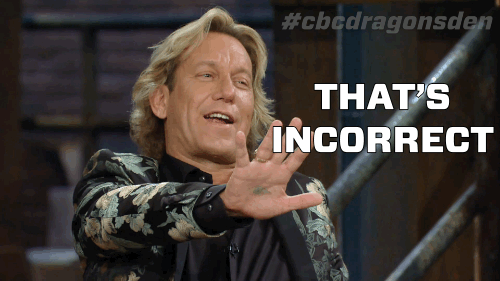… so then it should not be a problem when other people say it’s unfair and wrong ![]()
Clearly people can say what they like.
Yeah, the perspective on Russ Heath’s version is more consistent. That’s especially noticeable with the jet intake. And the wing fences are more accurately rendered. But then less devotion to a work as an illustration is one of the hallmarks of modern art.

So the art of the masses only really has importance and relevance when high art addresses it? Not buying that, sorry.
But, “high” art becomes so by working with and reframing what came before and can elevate “low” art in the process.
Or it’s a bullshit Boy’s Club with government backing leading to money laundering where the art itself is secondary.
So, none of Van Gogh’s work was of any value during his life?
Wait… are you telling me that the best art doesn’t always natural rise to the top!?! I’m SHOCKED I say… here I was thinking we were living in a meritocracy! /s

I’ve thought this too. But I realize that by acknowledging the theft, ahem, homage, Roy would have opened himself up to a lawsuit – ironically, from the comic publisher, who also exploited the original comic artist.
Thousands of comic book fans and collectors would disagree vehemently with your argument.
I can see this now that you’ve pointed it out. Thinking on it, that could be in parallel with an art-world snobbiness that’s long frustrated me - a haughty attitude towards commercial art and a distinction between artists and “artisans”. Which could further contribute to a snobbiness towards actual craft.
All of which probably supported Lichtenstein’s position. Of course these comic book “artists” weren’t making “real” “fine” art, you see. They were just crassly chasing the crass dollar by cranking out images for money for the masses. Making millions by selling to museums and collectors is entirely different. And It took Lichtenstein to magically elevate and purify that dross into gold by removing it from its commoner context…we needn’t speak of the lowly origins for some of the ingredients again…
All while most of the undeniably great “fine art” we know of before about 1900 would easily pass as commercial by that definition - they were paid works with restrained topics commissioned to aggrandize the subjects. Royal and wealthy portraits, and church-commissioned propaganda make up almost all of the catalog for Goya, Rembrandt, Michelangelo and many others.
…None of which should necessarily invalidate Lichtenstein either. I do wish he’d shared more of his success with the specific artists he appropriated. But his art is interesting for its own statements, and he did transform these works in ways that had innovative and strong impact. All these things can be true at the same time.
Sure, I agree Lichtenstein openly acknowledging specific source artists could have opened a can of worms for Lichtenstein. It would have been an interesting court case too. I do think it would eventually have been ruled in his favor, similarly to the more recent case of Shephard Fairey’s “Obey” poster vs. the original photographer. In fact, I’m not a lawyer but I expect similar prior cases of transformative art fed into that court decision. It would be interesting if Lichtenstein was even cited. Perhaps I’ll google it in a bit…
But yes. It could have been risky. Nevertheless, I do think it would have been the best thing to do, and he likely could have prevailed. Of course, that is easy for me to say also.
Not enough to make a substantial difference. Even other artists only swooped in to take possession of his art after his death, and then were met with strong resistance from Jo Van Gogh-Bonger, who championed her husband’s brother using her husband’s art connections.
I have the comic mentioned in this video! Got it in a lot off of ebay.
I am a pretty big fan of Lichtenstein. But this statement is bullshit.
Comic art has a long history of fandom. It is the fans who have elevated them not just as an art form, but as the pop culture power house they are today. For the most part, Lichtenstein is irrelevant to them.
If Lichtenstein never existed, the Modern Art movement still would have landed on “anything can be art”. Comic art didn’t instantly get respected as art in the 60s, it took several more decades before there was a sense of respect from the mainstream. And now with original works of dead artists like Bernie Wrightson going for a million + dollars, you could say that the art form has “arrived”. (Ironically, drawing in the “normies” as now comics and comic art is pretty sound investment.)
But all of this was from the labors of artists and writers churning out a commercial product. Their passions to make a good product. And the fans for cataloging, revering, and archiving said product.
Old school artists like Novick, Eisman, or Heath may not be as well known as some other names - but their work and memory would never have been relegated to a “bin”.
As a comic book fan and collector myself, I was motivated to write this comment because the only time these comic book artists have been mentioned on boing boing is in relation to Lichtenstein.
Most people understand that early comics were throw-away, and were thrown in the bin, or used as packaging for other printed materiel, for example.
That is why some of the most valuable comics are so highly sought after today - despite being printed in large numbers, only small numbers remain.
That’s an awful broad sweeping statement about a whole lotta people… I’m guess that just like today, some treated their comics as disposable and others did not.
Plus what @Melizmatic said about BB talking about various comic artists…
My entire lounge wall is vintage Wonder Woman comics and I couldn’t give a fuck about the monetary value or whether it makes “collectors” cry at their lost opportunity. Actually, I hope it does.
Scarcity helps those who already own a commodity, tho. ![]()
![]()
If money is the only thing they care about then it ain’t about the art.


